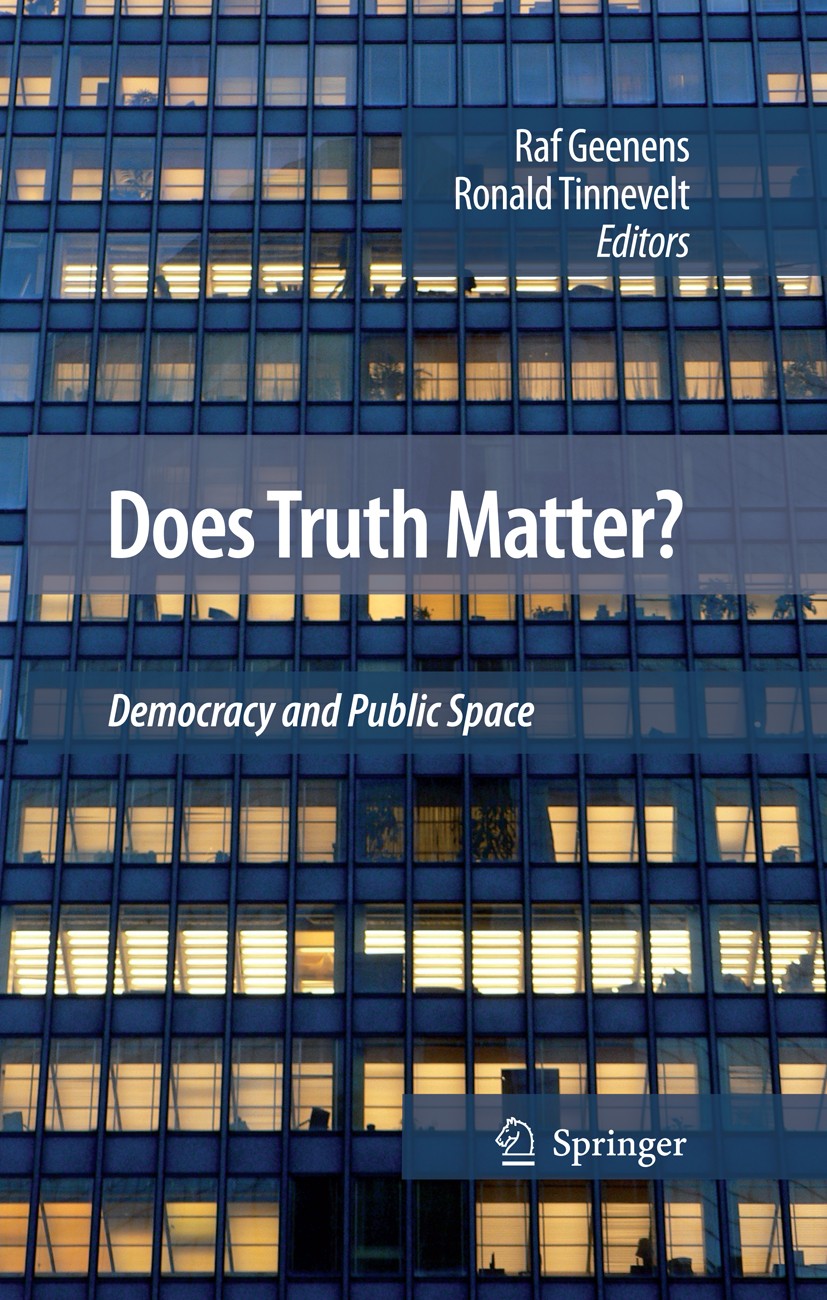| 书目名称 | Does Truth Matter? | | 副标题 | Democracy and Public | | 编辑 | Raf Geenens,Ronald Tinnevelt | | 视频video | http://file.papertrans.cn/283/282361/282361.mp4 | | 概述 | Comprehensive overview of the debate on democracy, power and globalisation.Presents different aspects as a coherent whole, instead of as discrete issues.Integrates thinking about the principles of dem | | 图书封面 |  | | 描述 | .The claim once made by philosophers of unique knowledge of the essence of humanity and society has fallen into disrepute. Neither Platonic forms, divine revelation nor metaphysical truth can serve as the ground for legitimating social and political norms. On the political level many seem to agree that democracy doesn’t need foundations. Nor are its citizens expected to discuss the worth of their comprehensive conceptions of the good life. According to Rawls, for example, we have to accept that “politics in a democratic society can never be guided by what we see as the whole truth (…)”. (1993: 243) And yet we still call upon truth when we participate in defining the basic structure our society and argue why our opinions, beliefs and preferences need to be taken seriously. We do not think that our views need to be taken into account by others because they are our views, but because we think they are true. If in a democratic society citizens have to deal with the challenge of affirming their claims as true, we need to analyse the precise relationship between truth and democracy. Does truth matter to democracy and if so, what is the place of truth in democratic politics? How can citiz | | 出版日期 | Book 2009 | | 关键词 | Democracy; Epistemology; John Rawls; Liberalism; Plato; Pragmatism; Public Sphere; Truth; logic; politics; res | | 版次 | 1 | | doi | https://doi.org/10.1007/978-1-4020-8849-0 | | isbn_softcover | 978-90-481-8004-2 | | isbn_ebook | 978-1-4020-8849-0 | | copyright | Springer Science+Business Media B.V. 2009 |
The information of publication is updating

|
|
 |Archiver|手机版|小黑屋|
派博传思国际
( 京公网安备110108008328)
GMT+8, 2026-1-8 15:23
|Archiver|手机版|小黑屋|
派博传思国际
( 京公网安备110108008328)
GMT+8, 2026-1-8 15:23


